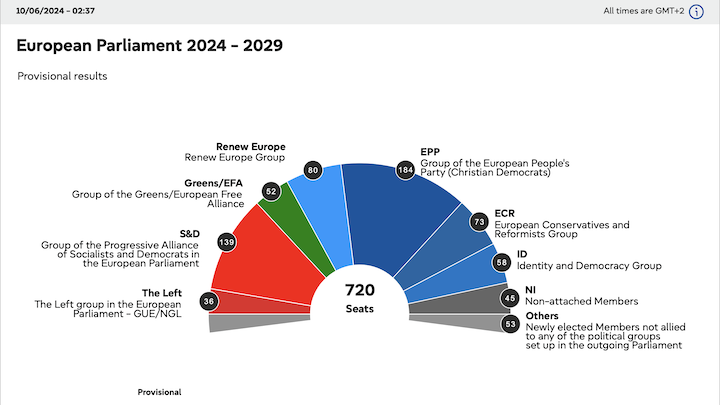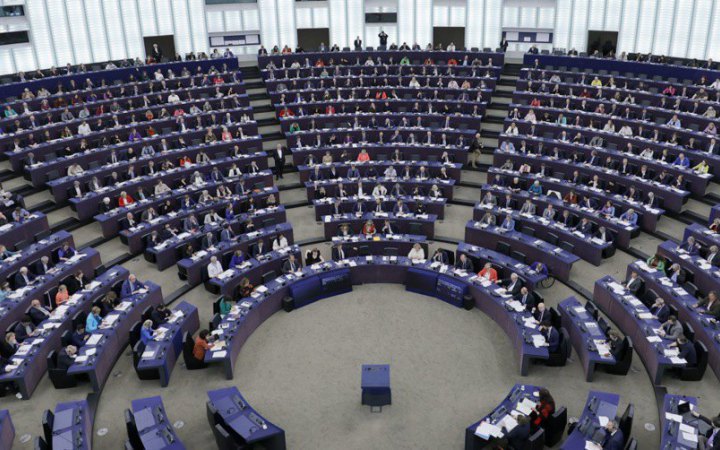According to preliminary data, the European People's Party is leading in the European Parliament elections. The same political force had a majority in the current EP.
According to preliminary data released by the European Parliament, the European People's Party (EPP) will have 184 seats out of 720. The Progressive Alliance of Socialists and Democrats (S&D) may come in second place with 139 MPs.

The third place is still held by the centrist Renew Europe, followed by two far-right groups: European Conservatives and Reformists with 72 MPs and Identity and Democracy with 58. The far-right will thus be successful, in particular due to the results in France and Germany (French President Emmanuel Macron dissolved parliament yesterday after learning the preliminary election results). However, the forecast indicates that the centrist groups have still maintained their unity, Radio Liberty reports.
As a centrist coalition will be formed again in the European Parliament, Ursula von der Leyen, who is currently President of the European Commission, will run for the post again.
After the announcement of the preliminary election results, she said that the CES seeks to build a centrist association in the European Parliament with a pro-Ukrainian position, Ukrinform writes.
"I have always said that I want to build a broad majority for a strong Europe. I have demonstrated during my first mandate what a strong Europe can achieve. My goal is to continue to move along this path with those forces that are pro-European, pro-Ukrainian, and stand for the rule of law. This work will start again tomorrow," she said.
- The European Parliament elections officially began on 6 June and lasted until 9 June. Estonia started voting even earlier on Monday. 373 million voters in the bloc's 27 member states were to elect 720 MEPs for the next five years. This is 15 more than in the previous election, but less than the 751 MEPs who were in parliament before Brexit, the UK's exit from the bloc. Politicians from around 200 parties from across Europe are running in the elections.








